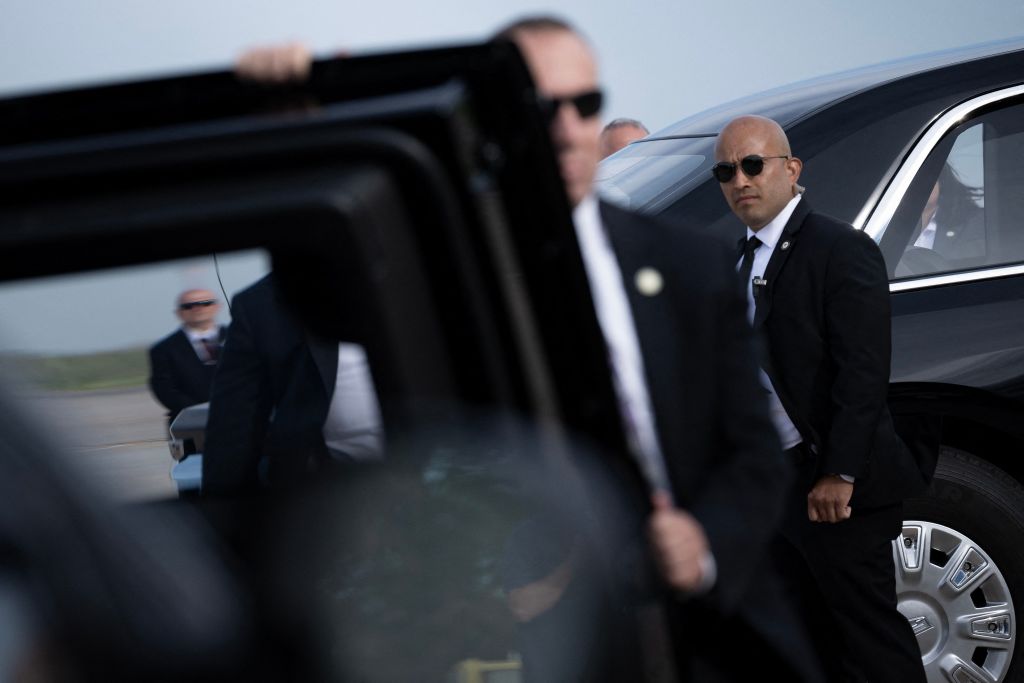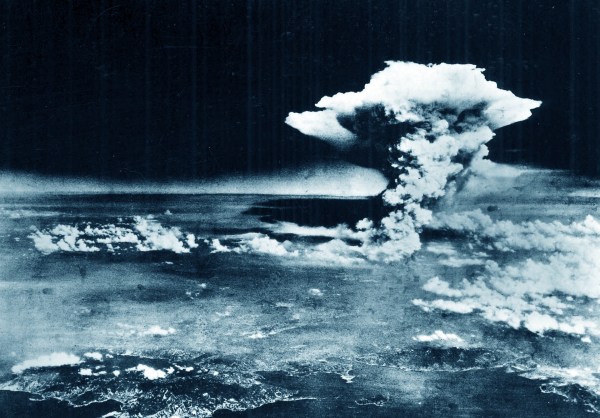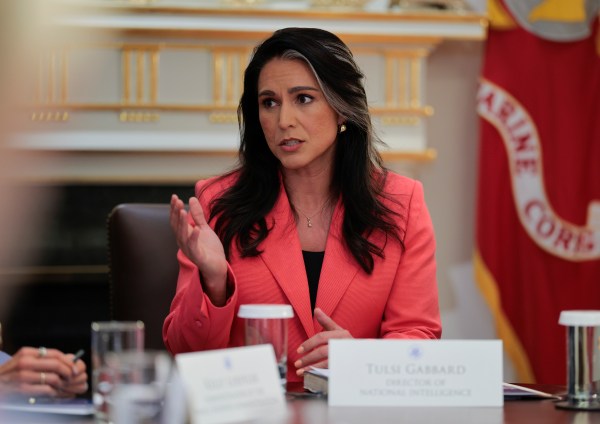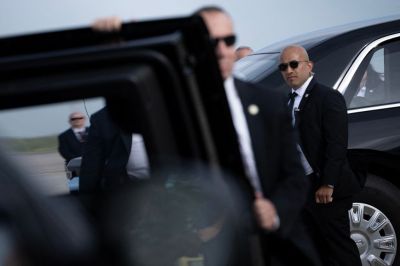Robert F. Kennedy Jr. complained last week that he’s been denied Secret Service protection by the Biden administration. “Since the assassination of my father in 1968, candidates for president are provided Secret Service protection. But not me,” Kennedy tweeted.
But determinations on who receives Secret Service protection isn’t as black-and-white as Kennedy suggests.
What’s the criteria for Secret Service protection?
The original purpose of the Secret Service—established in 1865—was to suppress the circulation of counterfeit currency. While that remains a responsibility of the agency, its mission was expanded to include protection services following the assassination of President William McKinley in 1901. Congress and President Lyndon B. Johnson expanded those services again in 1968—the day after Robert F. Kennedy was fatally shot campaigning for president—to include “major presidential and vice presidential candidates.”
But whether a candidate is considered a “major” candidate is ultimately decided by the secretary of homeland security in consultation with an advisory committee made up of the speaker of the House, the House minority leader, the Senate majority and minority leaders, and one other member chosen by the other members of the committee. The Department of Homeland Security (DHS) and advisory committee consider only candidates who submit a formal application for Secret Service protection.
The DHS secretary has “broad discretion and may consider a variety of factors” in identifying major candidates, according to the Secret Service website, including whether the candidate filed candidacy with the Federal Election Commission and is abiding by federal campaign finance laws, is actively campaigning for president, is a recipient of explicit threats of bodily harm, and has polled at 15 percent or higher in a 30-day, consecutive period in an “active and competitive major party primary.” Other factors include whether the candidate is a “formal or de facto nominee of a major party” or an “independent or third party candidate for President polling at 20% or more.”
Robert F. Kennedy Jr. meets some of the criteria for getting protection: He filed with the FEC shortly prior to announcing his candidacy and is actively campaigning for president. But after polling above 15 percent from April 27 to June 21, he has since fallen and currently hovers around 13 percent, according to the RealClearPolitics polling average. Plus he still trails President Joe Biden by about 50 points, meaning the 2024 Democratic primary is unlikely to be considered a “competitive” race.
But even that would not necessarily mean Secret Service protection for Kennedy.
How common has Secret Service protection been for past candidates?
Neither Ted Cruz nor Mike Huckabee, winners of the GOP Iowa caucuses in 2016 and 2008, respectively, received Secret Service protection during their election cycles. Similarly, Pete Buttigieg and Bernie Sanders, who won the first two 2020 Democratic nominating contests, Iowa and New Hampshire, had no Secret Service protection.
In the 2016 presidential race, Secret Service protection was granted to Donald Trump and Ben Carson in November 2015, and to Bernie Sanders in February 2016. Hillary Clinton had Secret Service protection in her 2008 and 2016 campaigns, as all former presidents—and their spouses—receive Secret Service details for life.
Moreover, it is very uncommon for candidates to receive Secret Service protection this early in the campaign cycle. A recent exception is Barack Obama, who received protection in May 2007 due to concerns about his safety in seeking to become the first black United States president.
Driven by similar concerns, Herman Cain—a black GOP presidential candidate in 2012—received early Secret Service protection in November 2011, three months further into the election cycle than we are currently at. Months later, fellow candidates Mitt Romney, Rick Santorum, and Newt Gingrich all received Secret Service detail, though only after they won state primary elections.
In the 2020 campaign, Biden received a Secret Service detail in March 2020—no other Democratic presidential candidate received protection in that election cycle.
Aside from Biden, the only other 2024 presidential candidate currently receiving Secret Service protection is former President Donald Trump. Mike Pence received Secret Service protection because he served as vice president, but that security ceased in 2021, six months after he left office, as mandated by the law which authorizes Secret Service protection.
The last challenger to an incumbent president within the same party to receive Secret Service protection—as Robert Kennedy Jr. is trying to do—was Pat Buchanan during the 1992 election. But he received it only after winning the New Hampshire primary in February.
The second most recent primary challenger to an incumbent president to get Secret Service protection was Ted Kennedy—Robert F. Kennedy Jr.’s uncle—in the 1980 presidential election. President Jimmy Carter granted the protection before Kennedy had announced his candidacy, driven by concerns of a potential assassination attempt in light of those that claimed the lives of his two brothers, John F. Kennedy and Robert F. Kennedy. Yet, even that wasn’t until September 1979, further into the election cycle compared to the current point in the 2024 race.
Gaining security from the Secret Service can be a sign that “your campaign is trending in the right direction,” says Kevin Madden, a senior adviser to Mitt Romney’s 2012 presidential campaign. But aside from the safety assurance and the agency’s help in getting around traffic,“I never really saw it as a benefit.”
“The logistics get more complicated,” he says. “So much of this stuff is now not up to them. That is dictated by the Secret Service protocols.”







Please note that we at The Dispatch hold ourselves, our work, and our commenters to a higher standard than other places on the internet. We welcome comments that foster genuine debate or discussion—including comments critical of us or our work—but responses that include ad hominem attacks on fellow Dispatch members or are intended to stoke fear and anger may be moderated.
With your membership, you only have the ability to comment on The Morning Dispatch articles. Consider upgrading to join the conversation everywhere.